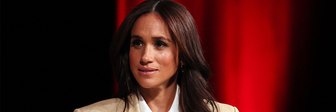Opposition parties usually become nervous just before an election is called but often for no other reason than stage fright. They have a secure lead in the opinion polls but they fear that something, somehow will go wrong. The victory that once seemed certain now looks in doubt. But then, come polling day, all turns out right.
A few months ago experienced Conservatives might have expected that this familiar pattern would repeat itself: confidence would be followed by a wobble but victory would come in the end. Maybe that is what will happen this time too. But there are plenty of people now asking whether the fears could be justified. What worries them is not simply the narrowing of the poll lead but whether David Cameron’s behaviour is allowing doubts about his capacity to be prime minister to take root in voters’ minds. Events of the past week cannot have helped.
Last Monday, Lord Ashcroft, the deputy chairman of the Conservative Party, announced that he was not domiciled in the United Kingdom for tax purposes – in other words, although he pays UK tax on what he earns in this country, he does not do so on what are thought to be much greater earnings made abroad. This news seemed to fly in the face of commitments to become a permanent British resident (with the implication of full UK tax status) he was thought to have made ten years ago when he became a member of the House of Lords.
To many observers, though, this announcement came as no surprise at all. Although Lord Ashcroft, who has given millions of pounds to the Tory Party, helping fund its campaign in marginal seats, and who was made its deputy chairman by David Cameron, was believed to have made the commitment in order to become a peer, he has up to now been rather coy about saying whether or not he had yet honoured it. His tax affairs, he argued, were a private matter.
The Tories’ political opponents and the media, however, insisted it is no such thing. It was a matter of public interest, they claimed, because his peerage was secured only by making the commitment. If Lord Ashcroft himself would not answer legitimate questions, they pressed, what light could the Tory leadership shed on the matter?
In answer to repeated questions, Conservative leaders said that, as far as they knew, Lord Ashcroft had done all that was required of him. But had they asked him directly whether he had yet changed his non-dom status? When confronted with this question, William Hague, the Tory leader at the time Lord Ashcroft was made a peer and now the shadow foreign secretary, refused to be drawn. Many smelt a rat.
Lord Ashcroft’s announcement seems to have been prompted by the likelihood that the information would have become public anyway as a result of a freedom of information request. What has emerged is that, at the time he became a peer, the deal brokered by a senior civil servant, Sir Hayden Phillips, between the public honours scrutiny committee and the then Tory chief whip, James Arbuthnot, used words (according to Sir Hayden) “formulated differently from the originally announced words” of the deal. Rather than become a permanent UK resident, Lord Ashcroft was allowed to be a “long-term” resident – in short, he could retain his non-dom status.
There is no suggestion that Lord Ashcroft has broken the law. Furthermore, the Electoral Commission has ruled that his donations to the Tory Party have been entirely legal. But the whole episode has raised questions about the judgement of the Tory leadership and especially of David Cameron and William Hague.
Mr Hague says he did not know of the changed terms of the deal at the time and that he learned of Lord Ashcroft’s tax status only in “the last few months”. But he did not immediately tell Mr Cameron, who heard of it only last month. To many opponents of the Tory Party this all looks far too convenient. Had Lord Ashcroft’s tax status been public knowledge earlier, they say, it would have been politically very difficult for the party to go on receiving his generous and badly needed donations. So it served the interests of everyone involved to keep the facts murky, they argue.
But now the party may be paying the price for its lack of openness. David Cameron claimed when he became leader that he wanted a new, more open politics and he insists that a Tory government would legislate to require all members of both houses of parliament to be full British citizens, fully subject to UK taxation. But to many, the Ashcroft affair smacks of the old, behind-closed-doors politics. And the party’s opponents are claiming it exposes the real David Cameron: someone, they say, unfit to be prime minister.
Lord Mandelson, the business secretary and chief Labour strategist, said of Lord Ashcroft’s tax status: “For 10 years that fact has been concealed from the British people. During that time, David Cameron and William Hague have repeatedly said the undertakings were being met. Either they were misleading people or were being misled by Ashcroft. Which is it? Either way, Mr Cameron has shown extraordinary weakness. If he knew the truth, he should have fired Ashcroft. If not, why was he too afraid to ask Ashcroft the awkward direct question?
Even Conservative supporters have questioned the way the leadership has handled the issue. Lord Tebbit, a former party chairman, said that although Lord Ashcroft had done nothing wrong at all, it “would have been better” to have revealed the facts years ago because the concealment has left the perception that all was not as it should have been. The handling of the issue had “failed the Daily Mail test”, he said – the rule that politicians should never do anything they would not be happy to see reported in the following day’s Daily Mail.
But whatever problems the Tories may have brought on themselves over the Ashcroft affair, the other parties have hardly squeaky clean records regarding their own funding. Even while attacking the Conservatives over Lord Ashcroft, Labour has its own problems with non-dom donors. On Sunday Labour’s deputy leader, Harriet Harman, said she “did not know” whether Labour received donations from supporters with non-dom tax status. This led the Tory chairman, Eric Pickles, to retort: “When will she learn that people in glass houses shouldn’t throw stones?” It is widely believed that several prominent Labour donors, including Lord Paul, Sir Ronald Cohen and William Bollinger, may enjoy non-dom status.
Behind these rows lies the unresolved question of how political parties should be funded. Some argue that the solution is to limit individual donations and provide state funding for parties. Others argue that taxpayers should not have to foot the bill and that parties should rely solely on individual donations, capped to prevent a donor ‘buying’ a party.
This issue will not be resolved before the election. Meanwhile, anxious Tories wonder whether the Ashcroft affair will damage their leader and, if so, how much.
What’s your view? Has the Ashcroft affair affected your view of the Tories and of David Cameron? Could it change your vote? Do you think it right or wrong for Lord Ashcroft to donate millions of pounds to the Conservative Party while continuing to enjoy non-dom tax status? Should he have been allowed to sit in the House of Lords as a non-dom or not? Should his tax status have been made public earlier or not? Do you think it is reasonable or not for Harriet Harman to say she does not know whether Labour receives donations from non-dom supporters or not? In attacking the Conservatives over Lord Ashcroft, is Labour guilty of hypocrisy or not? And how do you think political parties should be funded?









